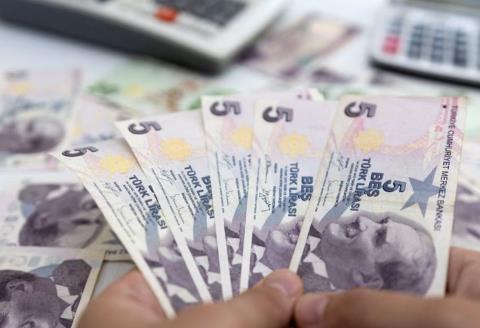
Turkish government has sought to dispel investors concerns about the economy, amid fluctuations in the exchange rate of the lira against foreign currencies and ongoing inflation as the current account deficit increases and the unemployment rate rises.
On Saturday, Turkish President Tayyip Erdogan called on Turks to convert their dollar and euro savings into lira, aiming to support the local currency which has lost some 20 percent of its value against the US currency this year.
“My brothers who have dollars or euros under their pillow. Go and convert your money into lira. We will thwart this game together,” Erdogan said at a rally in Erzurum ahead of parliamentary and presidential elections on June 24.
For his part, Turkish Deputy Prime Minister Mehmet Simsek said that the concerns about the economic balance in Turkey, comes against the fluctuations in the exchange rate of the local currency against the dollar, pointing out that there are strong aspects of Turkey to cope with these fluctuations.
In a speech at the 21st edition of the Economists Prize, Simsek praised Turkish Central Bank’s decision last Wednesday to raise the lending rate from 13.5 percent to 16.5 percent in an effort to counter the sharp decline in the Turkish lira against the dollar.
The Deputy PM indicated that in the last 15 years, Turkey held elections and referenda almost every year and a half .
Addressing Turkeys relations with the European Union, Simsek said that positive relations are beginning to revive and that efforts to modernize the customs union will produce results because this is beneficial to both sides.
In 2005, European Union and Turkey signed an additional protocol concerning the expansion of the customs union to accommodate the new members of the European Union.
As part of the Turkish Central Banks intensive efforts to curb the violent decline in the Turkish lira exchange rate, the Central Bank decided to allow exporters to repay foreign currency-denominated loans in the local currency.
“It has been decided that the repayments of rediscount credits for export and foreign exchange earning services that have been extended before 25 May 2018, which will be due by 31 July 2018 (included), can be made in Turkish liras at an exchange rate of 4.2 to the USD, 4.9 to the Euro, and 5.6 to the GBP, provided that they are paid at maturity,” the Bank said in a statement on May 25.
For his part, Turkish presidential spokesman Ibrahim Kalin called the Turkish lira’s fall against the dollar “artificial and inflated”, and said the government was taking the appropriate measures.
On Friday, Turkey’s prime minister Binali Yildirim blamed “manipulations” for the recent foreign exchange rate volatility ahead of Turkey’s June 24 general elections.
“The volatility in foreign exchange rates is the result of some manipulations, especially ahead of the elections,” Yildirim told a rally in Izmir.
“Our economy is based on strong foundations,” asserted Yildirim.
He said Turkey had made it through the 2008 global financial crisis relatively unscathed.
The exchange rate of the Turkish lira against the dollar rose sharply during the past few days, prompting the central bank to take emergency measures. Currently, the rate is at 4.70 lira to the dollar, which is also high despite efforts to stop the deterioration of the lira.
Last week, exchange rate reached 4.93 liras per dollar before the bank intervened and increased the interest rate 300 basis points.












